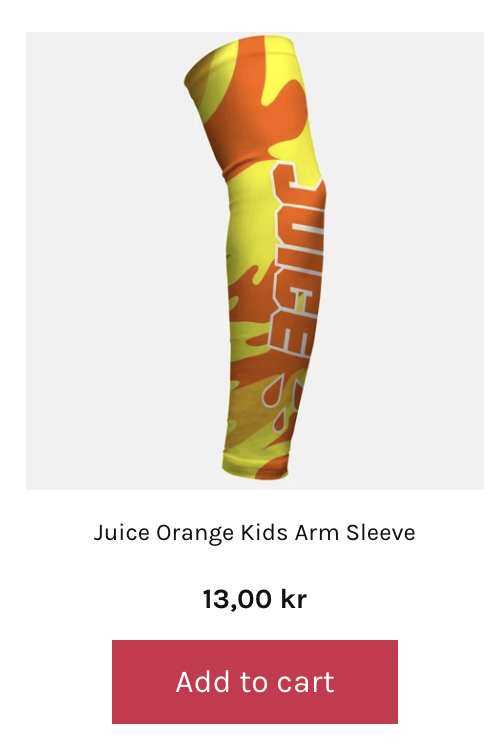Add To Cart Button

#2. Time Estimates
- Set up in Platform: n/a hours
- Integration: 2 hours
- Styling: 0.5 hours
#3. Functional Overview
Components:
components/Cards/Product/index.tsx
#4. Integration Steps
First, you need to create an AddToCart component which will be responsible for the logic.
We will also use the Axios client in this instance.
This is how the AddToCartButton component is built:
import axios from 'axios';
const AddToCart = ({ item }) => {
const onClick = async (event) => {
// Prevent clicking item
event.stopPropagation();
const item_id = item.get('id');
const variant_item_id = item.get('selected_variant_id');
// Send events
await item.analytics.sendEvent('add-to-cart', { item_id, variant_item_id, quantity: 1, rid: item.meta.toJS().rid });
await item.analytics.sendEvent('click-item', { item_id, variant_item_id, rid: item.meta.toJS().rid });
// Your code
...
}
return(
<button className='YOUR CSS CLASS' onClick={onClick}>
Add to cart
</button>
)
};
export default AddToCart;
import axios from 'axios';
const AddToCart = ({ item }) => {
const onClick = async (event) => {
// Prevent clicking item
event.stopPropagation();
const item_id = item.get('id');
const variant_item_id = item.get('selected_variant_id');
// Send events
await item.analytics.sendEvent('add-to-cart', { item_id, variant_item_id, quantity: 1, rid: item.meta.toJS().rid });
await item.analytics.sendEvent('click-item', { item_id, variant_item_id, rid: item.meta.toJS().rid });
window.location.href = `/cart.php?action=add&product_id=${item_id}`;
}
return(
<button className='YOUR CSS CLASS' onClick={onClick}>
Add to cart
</button>
)
};
export default AddToCart;
import axios from 'axios';
const AddToCart = ({ item }) => {
const onClick = async (event) => {
// Prevent clicking item
event.stopPropagation();
const item_id = item.get('id');
const variant_item_id = item.get('selected_variant_id');
// Send events
await item.analytics.sendEvent('add-to-cart', { item_id, variant_item_id, quantity: 1, rid: item.meta.toJS().rid });
await item.analytics.sendEvent('click-item', { item_id, variant_item_id, rid: item.meta.toJS().rid });
await axios.post('/cart/add', {
quantity: 1,
id: item.getIn(['variants_ids', 0]) // //SET CORRECT VARIANT ID IF THERE ARE MULTIPLE
})
}
return(
<button className='YOUR CSS CLASS' onClick={onClick}>
Add to cart
</button>
)
};
export default AddToCart;
#5. Modifications
Since Findify is a third-party application, we have no connection to the Cart components of your store. This means that in order to integrate your Add to Cart solution with the front-end based actions (adding the product to the Cart through API, opening the mini-carts, showing messages once the product is added, etc), you need to setup a function which can then be utilised by Findify.
Requirements: We suggest to come up with the simplest functions available in the global (window) scope across all possible pages where Findify widgets might be present:
window.addToCart('some variant/product id', 1);
Where the first parameter is either a variant or a product id of the product and the second one is the quantity of the product that is going to be added to the cart.
The first argument has to be a variant id in case you have some kind of variant selectors implementation.
#6. MJS Version
This module has been optimized for MJS version 7.1.37
Updated almost 2 years ago
